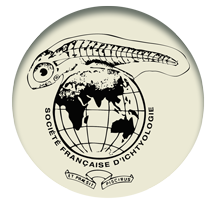Developing a precautionary ecosystem approach to managing fisheries and other marine activities at Heard Island and McDonald Islands in the Indian Sector of the Southern Ocean
How to cite: Constable, A. J., & Welsford, D. (2011). Developing a precautionary ecosystem approach to managing fisheries and other marine activities at Heard Island and McDonald Islands in the Indian Sector of the Southern Ocean. Cybium, 35(SP): 233-255. https://doi.org/10.26028/CYBIUM/2011-35SP-026
Conservation of marine biodiversity and sustainable use of marine resources in the vicinity of Heard Island and McDonald Islands (HIMI) have been important goals for the Australian Government since 1980 when it signed the Convention on the Conservation of Antarctic Marine Living Resources. The evolving marine policy, legal and regulatory framework within Australia, combined with its international obligations, have provided a strong foundation for the precautionary, ecosystem based approach to achieving its goals for managing of marine resources and conserving biodiversity conservation in the region. The elements of the approach can be summarised as (i) the precautionary approach to setting catch limits for target species, (ii) a strategy for managing bycatch in the fisheries, notably mitigation of seabird mortality and minimising the bycatch of finfish species, (iii) spatial management of activities to conserve representative areas of marine biodiversity in the region and to avoid fishing causing significant harm to benthic habitats, (iv) mitigation of indirect effects of fisheries on food webs, and (v) elaboration of approaches to adjust fishing in the event of climate change or other impacts on the ecosystem. Here, we detail each of the elements of the approach aimed at achieving the objectives of conservation and sustainable use of marine biodiversity in the HIMI region, and illustrate the scientific principles and research being used to facilitate achieving these objectives. The experience at HIMI shows that the precautionary approach can advance the development of fisheries and achieve environmentally sustainable outcomes in cases when there are few data at the beginning. It shows that correction of early mistakes (assumed higher than actual productivity of the stock along with overharvesting by illegal operators) is possible without suffering substantial loss to the fishery. A key lesson is in the acquisition of data and the development of management measures in advance of the full development of the fishery and a process by which management measures can be readily agreed by stakeholders and adjusted as problems are identified. An important challenge remaining to be addressed is how to account for the change in status of the stocks and the ecosystem and the respective roles that fisheries and climate change have in causing those changes across the Kerguelen Plateau.


